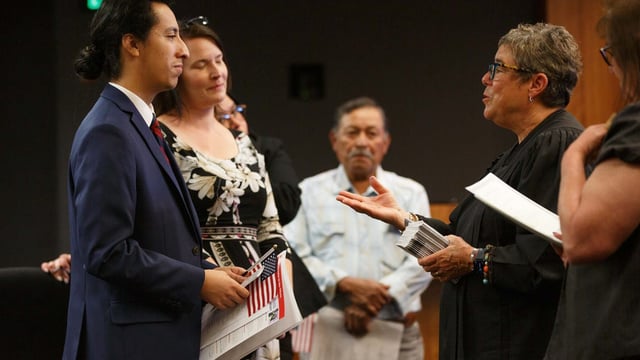Overview
- An August 15 USCIS memo directs adjudicators to weigh socioeconomic indicators, community participation, family care, education, stable employment and tax compliance alongside criminal-history checks.
- The guidance says certain legal behaviors that conflict with typical civic conduct, such as repeated traffic violations or harassment, can count against an applicant.
- Officers are instructed to consider rehabilitation evidence, including payment of back taxes or child support, compliance with sentences or probation, and community testimony.
- USCIS frames the shift as restoring integrity to naturalization decisions, while experts warn it could discourage lawful permanent residents from applying and add uncertainty to outcomes.
- Core requirements like the five-year conduct period, residency thresholds, and English and civics tests remain in place, with operational timelines for the new review still unclear.



